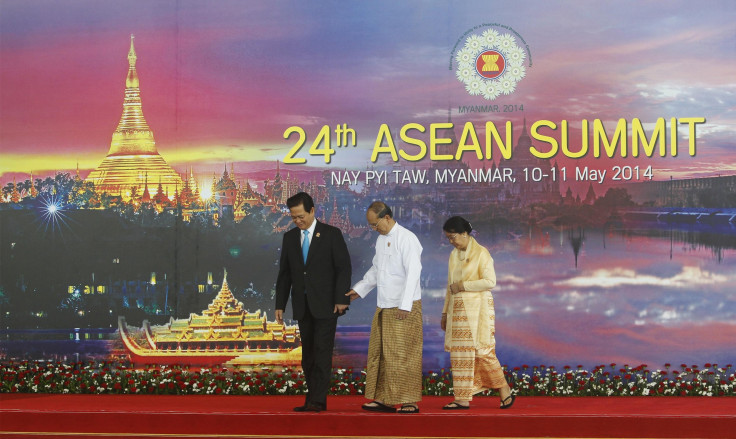ASEAN Silent In China/Vietnam Maritime Clash

One way to deal with a local bully is for a neighborhood to band together. But when the bully is the People's Republic of China, even an organized group might fail to muster much resistance.
Last week’s clash between Chinese and Vietnamese forces in the South China Sea, triggered by China’s move to establish the HD-981 oil rig near the disputed Paracel Islands, is the latest example of tension between China and its Southeast Asian neighbors. The Association of Southeast Asian Nations, the region’s major multilateral organization, responded by ... skirting the issue. A statement released by the foreign ministers of 10 countries at the conclusion of ASEAN's Myanmar summit expressed “serious concern” over tension in the South China Sea, and called on all sides to exercise “self-restraint.” China wasn’t mentioned by name at all.
ASEAN’s tepid response is the latest sign of how deeply the organization, which comprises countries with a combined population of more than 600 million people, is reluctant to offend its northern neighbor -- even as several member states have clashed with China over maritime issues. Most recently, the Philippines last week detained nine Chinese fishermen for poaching endangered sea turtles near the Spratly Islands, another disputed archipelago in the South China Sea.
ASEAN's member states have differing priorities. Countries like Cambodia and Laos -- which lack maritime claims in conflict with China and depend heavily on it for investment -- have little cause to offend Beijing. And because ASEAN seeks a common denominator before issuing a policy statement, the organization has a limited ability to take a strong stand on behalf of any one country.
For China, ASEAN’s message is clear: We won’t stand in the way. Projects like the HD-981 rig signify Beijing’s strategy in its East Asian periphery. The potentially energy-rich waters around the Paracel Islands offer China a chance to wean itself off of oil imports, which involve relying on distant, often unstable, regimes. China’s assertion of territorial claims has political utility, too, and is seen as restoring the country’s historic regional dominance.
For now, the oil rig incident remains unresolved. This is unlikely to be China’s last provocation in the region -- or ASEAN's last opportunity to expose its own impotence.
© Copyright IBTimes 2024. All rights reserved.






















